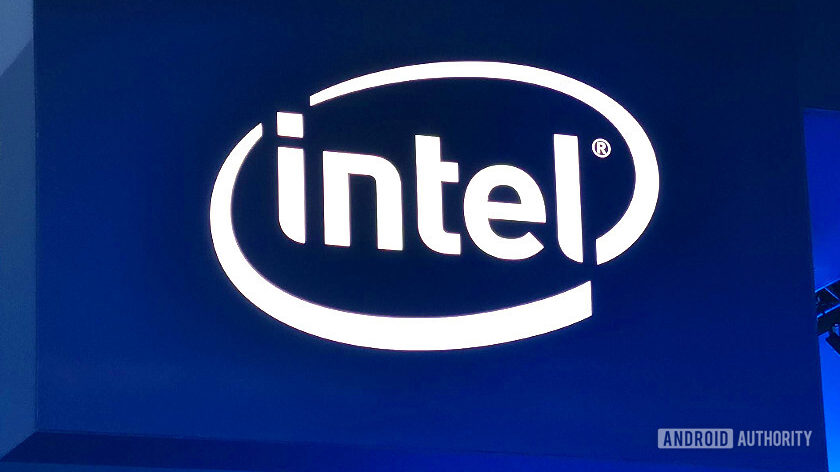
- AMD has announced its Ryzen 5000 series laptop processors, shipping next month.
- Intel has also announced new notebook processors and teased next-generation chips.
This year’s edition of CES may be a virtual affair, but that hasn’t stopped PC chip veterans Intel and AMD from lining up announcements this year. The companies both announced new laptop processors, suggesting some notable upgrades in 2021.
AMD brings the laptop goods
The chipmaker announced its Zen 3-based Ryzen processors late last year, but these were only available for desktop computers. Fortunately, that’s changing today thanks to AMD revealing Ryzen 5000 series laptop chips based on the Zen 3 architecture. The new processors are built on TSMC’s 7nm manufacturing process and offer up to eight Zen 3 CPU cores in thin laptop form factors.
Starting at the top, AMD has the Ryzen 9 5900HX and Ryzen 9 5980HX, with these processors offering support for overclocking, eight cores/16 threads, 45W or higher TDP, and 20MBs of L2+L3 cache. The 5900HX tops out at 4.6GHz, while the 5980HX offers maximum clock speeds of 4.8GHz.
The chipmaker says you can expect the Ryzen 9 5900HX to run Horizon Zero Dawn at over 100fps at 1080p resolution with high detail. Furthermore, AMD showed off several benchmarks, pitting the 5900HX against the Intel Core i9 10980HK (see below, left), with double-digit performance gains according to the company.
Moving down a notch, we’ve got the Ryzen 7 5800U, giving you eight cores and 16 threads as well. AMD claims numerous wins for the processor in benchmarks compared to the Intel Core i7 1185G7 (see above, right). But the firm also says you can expect up to 17.5 hours of “general� usage and up to 21 hours of movie playback.
The chipmaker expects over 150 notebooks to be powered by the Ryzen 5000 series this year. And you won’t have to wait long to get your hands on these notebooks, as AMD notes that the first products will be available from February.
AMD also had more to share, confirming that its RDNA2-based graphics architecture will come to laptops in the first half of 2021. Those hoping for the firm’s graphics tech to come to smartphones will just need to wait until next year.
What did Intel have on offer?

Intel held its event yesterday, and probably the most high profile announcements were teasers for its 11th generation Intel Core S-series desktop chips (Rocket Lake S) and its next-generation processors (dubbed Alder Lake). Intel says both chip families will come to market later this year.
The latter processors look like a step in the Arm direction, as Intel is adopting high performance and high efficiency CPU cores akin to the big.LITTLE architecture. It makes for an interesting development, and could theoretically open the door for more battery efficiency if Intel gets things right. The firm is also touting a 10nm SuperFin manufacturing process, although it’s unclear how this shapes up to AMD’s 7nm process.
Unfortunately, these were only teasers, so we’ll have to wait for Intel to dish out details regarding the CPU, GPU, and other capabilities.
These weren’t the only announcements Intel had on offer, as it also revealed 11th generation Intel Core H series mobile processors for so-called ultra-portable laptops (set for an H1 2021 release). In fact, Intel reckons that this chip family can deliver 1080p gaming at ~70fps with high visual settings. The firm specifically pointed to this performance for titles like Grid, Valorant, Destiny 2 Beyond Light, Star Wars Jedi Fallen Order, and League of Legends. But Intel notes that this performance is in conjunction with upcoming discrete Nvidia graphics.
Related: The best gaming laptops you can buy right now
Expect up to 5GHz turbo clock speeds (at least for the top-end special edition chip), four cores/eight threads, Xe integrated graphics, a 10nm SuperFin manufacturing process. Other notable features include Wi-Fi 6E support, Thunderbolt 4 connectivity, and. Intel is also claiming that the top-end i7-11375H sports the fastest single-threaded performance for any laptop processor (citing the SPECint benchmark), matched by the top-end 10th generation H series chip.
The firm also teased an eight core 11th generation Core H series processor with 16 threads, topping out at 5GHz. But there’s no word on a release window for this chip.
Moving on, Intel announced the availability of 10nm Intel Pentium and Celeron processors, which should deliver a welcome efficiency and performance boost to its under-powered low-end portfolio. Finally, Intel also announced 11th generation Core vPro and Evo vPro processors for enhanced security. Unfortunately, Intel didn’t give a release date for the new 10nm and vPro processors.



